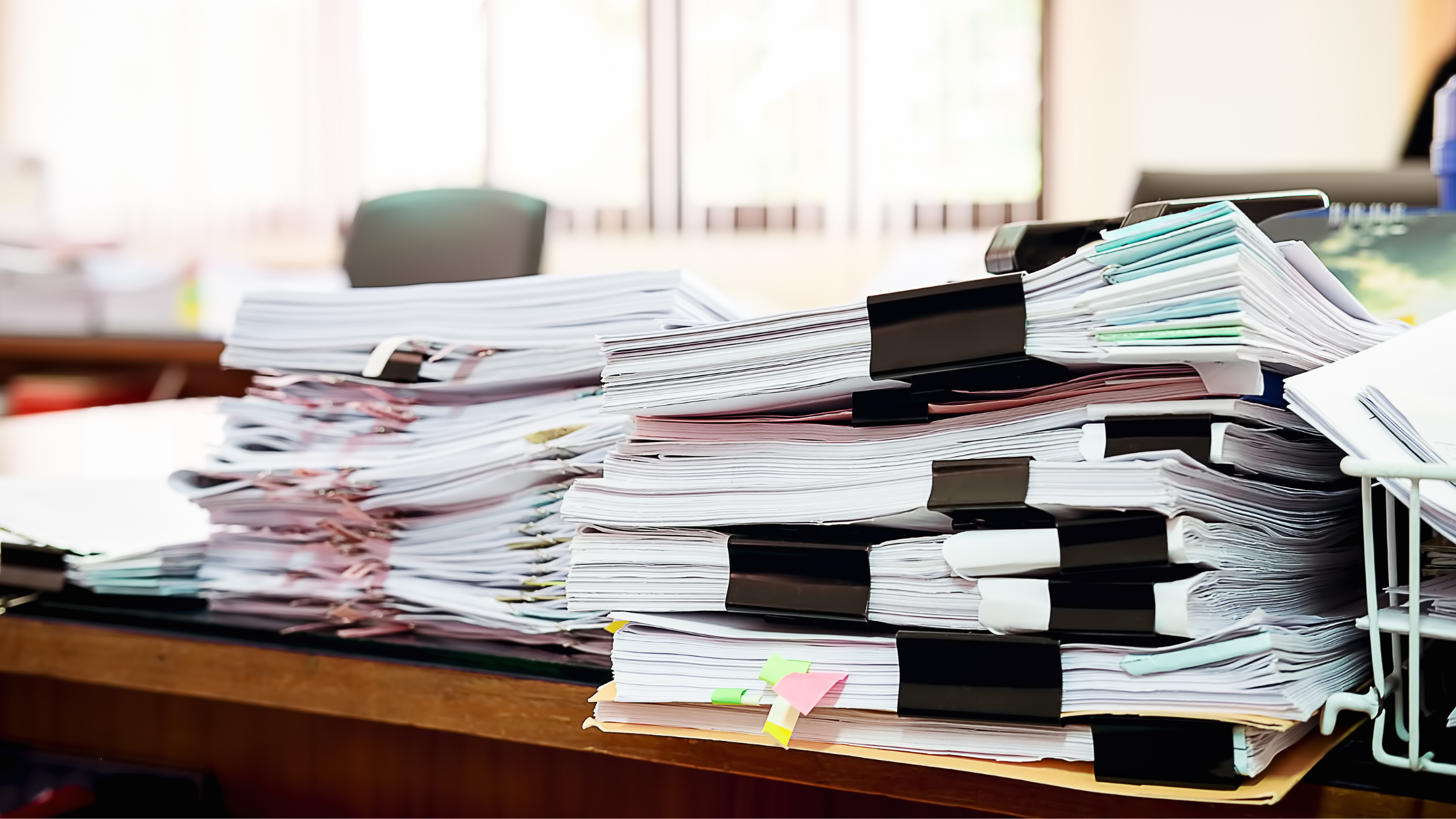eDiscovery is not a bad word. It’s actually the opposite. For those litigation paralegals who embrace it and learn everything they can about it, eDiscovery matters and has been a game-changer for their careers.
If you’re not a litigation paralegal, this blog is for you too – because you could switch out the word eDiscovery here for any technology that your practice area uses to increase efficiencies, but you’ve been hesitant to adopt it – for whatever reason.
Prefer to Listen Instead of Read?
I felt compelled to dive into this topic based on a few conversations I’ve had recently in messages on LinkedIn. In fact, I’m also hosting a free masterclass on it because of how important eDiscovery is to litigation paralegal careers.
Essentially, all of the conversations were about the same thing. Something along the lines of I know you talk about creating career security, and I know part of that for me should be taking on eDiscovery projects, but I have to tell you that I’m thankful that I work for an attorney who still likes everything printed out on paper. Or, we don’t do eDiscovery at my firm.
If you’re in litigation, you most certainly are involved in eDiscovery, you’re just not involved in the right way. You might not be doing it efficiently or effectively.
Get Litigation Technology Tips for Paralegals.
I know that sounds a little harsh, but think about it. When your client sends you their email files (in other words, electronic mail files), and your attorney wants you to print out all of those emails so they can review them and flag them; then give that paper stack to you for you to scan in the ones that they want to produce. You are handling eDiscovery. You’re just not handling it in an efficient way. And some would go to the extent of saying, you’re wasting time and therefore wasting the client’s money. But that’s not what we’re talking about here.

Technology is Here to Stay
Look, we all know our world is an electronic world. It is all about technology. Unless you’re someone who’s intentionally gone off the grid and doesn’t have a cell phone, a computer, a FitBit, or any other device – you are creating data and metadata every minute of every day. And so are your clients.
Now, it’s highly unlikely that you fit into the off-the-grid category or you wouldn’t be reading this blog.
Technology is easily accessible now, and mostly affordable. It is wearable – tracking our steps and our location.
Technology is mobile. Can be user-friendly. We use it for directions to where we are going. It tells us if we’re going faster than the posted speed limit. It tells us if the store we are headed to will be open by the time we arrive.
Technology is a part of our everyday life. And it is a part of your client’s everyday life.
Learn more about eDiscovery Trends.
E-discovery Boot Camp
E-discovery skills are no longer on that list of “preferred” skills when employers are hiring litigation paralegals. These skills are required now.
Don’t limit your future career security by not knowing how to manage e-discovery projects.
This e-discovery training program will help you become a master at e-discovery project management in just 5 hours!

eDiscovery Matters
Think about the family law paralegal working on a divorce case.
Did the soon-to-be ex-husband ask Alexa to Google how to hide assets from someone? Did he use Whatsapp or Facebook Messenger to communicate with his girlfriend? Does he have special software installed on his computer to prevent his wife from seeing what he’s really doing online?
You won’t ever know if you don’t do eDiscovery. As the litigation paralegal working on that case, you can’t do your job effectively without knowing how to handle eDiscovery.
What if you’re a personal injury paralegal?
Maybe you don’t think eDiscovery matters to your paralegal career because you receive those medical records and other documents (most likely electronically as a PDF now instead of paper). But what about when the case goes to trial? Are there things that will be used at trial that came in electronically, like emails, text messages, and audio messages to 911.
Or maybe most of your cases settle, this may apply to you when you consider if there are technologies out there that could increase your efficiency when it comes to reviewing and organizing medical records. Are you still printing out those PDFs, highlighting, and putting them into notebooks?
It doesn’t matter what practice area you are in. Just replace the word eDiscovery with practice-specific technology.
There’s a quote from Stewart Brand that I like and applies in this case, “Once a new technology rolls over you if you’re not part of the steamroller, you’re part of the road.”
Here is a 3-step plan for litigation paralegals to accelerate their careers.
Your Future with eDiscovery
eDiscovery is not going away. It’s only going to become more critical for you to know. In fact, I remember the day not too long ago when eDiscovery skills were listed in a job advertisement in the “preferred skills” section of the job description. Now, it’s almost always in the required skills section. And that’s why I am constantly talking about career security over job security.
You might currently be at a job at a small law firm with only a couple of lawyers and they’re older. They like things printed and reviewed on paper. So you don’t have to know much about eDiscovery for your job.
For your current job.
But what happens if those attorneys close the firm, downsize, or get bought out by a bigger firm? Now, in order to find another job as a litigation paralegal, you’ll be required to have eDiscovery skills.
Think about eDiscovery just like you would think about any other skill you need to have as a litigation paralegal.
Because no one writes letters on paper anymore. Well, on a special occasion we might, but that’s not happening like it used to back when I was growing up.
When was the last time you signed a contract on paper and put a copy in a file cabinet drawer?
Are there some businesses that still keep huge file storage rooms and go there to retrieve a copy of something? Sure, maybe there are some. But not very many.
Even the hold-out law firms who were still all paper in 2019 have gone electronic thanks to Covid.
Remember a decade or two ago when you would print out directions to go somewhere?
Or when you had to bring your camera to the drugstore to get your pictures developed and wait a few days to go back and pick them up?
How about when you used to have to write a check, put a stamp on it, and mail it to pay your power bill?
In fact, that’s a really good analogy. If you were to do that now and added up the cost of an envelope, a stamp, and the cost of getting those checkbook refills, it might cost you 75 cents to send that check by mail, but it’s free to pay that bill online or in the power company’s app! And multiply that by thousands of payments.
That’s what it’s like when you’re printing out all of those emails instead of utilizing eDiscovery technology. It doesn’t seem like much at first but totaled up throughout the case, or throughout the year, it’s a lot more than you think.
Learn about a path to eDiscovery certification.

How Things Have Changed for Paralegals
If you’re still only dipping your toes into eDiscovery and hoping it just goes away, or that maybe you’ll be able to retire before you have to learn it…you’re not alone. I hear that from someone at least once a month. They email me or call me and ask me about the eDiscovery Boot Camp and they tell me, they kept hoping it was going away, or that their attorney would stick with the paper method long enough for them to get closer to retirement.
I get it. I was part of the good ole days when document production from the other side arrived in piles of boxes or trucks full of boxes. I had to sift through all of that paper, armed with my stack of colored flags and post-it notes and my dictaphone, giving a summary of what was in each box. That little cassette tape would go to the word processing department or the secretary so it could become a production index.
If you’re a paralegal younger than 35, you probably have no idea what I’m talking about. But the others, you’re probably out there shaking your head because you remember those days.
If it was a review of our client’s documents that we were going to have to produce to the other side, I’d be using my red flags for the privilege, yellow for confidential information, green for responsive, blue for XYZ, and the list goes on.
It was time-consuming! But I have to admit it was rewarding when I’d look into a room full of boxes and see that sea of red, yellow, and green flags. But that was 20 years ago.
At that time we were just starting to dabble in eDiscovery. Usually only when it was a bet the company type of case, because eDiscovery was not as prevalent back then. It was also not as user-friendly and accessible as it is now.
Embrace eDiscovery for More Opportunity
I can go through a whole list of reasons why you should embrace eDiscovery if you are a litigation paralegal, AND how it can actually make your job easier, not more complicated. That’s what I’m going to show you in our FREE masterclass.
If you want to fast-track your litigation career, join me for that because if you have not yet mastered eDiscovery, I will show you why it’s so critical for your career that you do it now.
I recently interviewed a former litigation paralegal who mastered eDiscovery and she is the perfect example of how to use eDiscovery skills to seriously accelerate your career. She’s one of many litigation paralegals, where you see what they’ve done with their careers, and get insight into just how much is possible. Even if that’s not exactly what you want for yourself, just to know that there are so many possibilities that open up.
Litigation Paralegal Boot Camp
Are you tired of being the Panic Mode Paralegal who spends your days playing whack-a-mole with last-minute rush projects because you’re waiting for someone to show you what it takes to be great litigation paralegal?
This is the only program of its kind that provides litigation paralegals with all of the tools to master litigation cases from the complaint through the trial, and everything in between.
You will be the Confident Case Strategist faster than you ever imagined possible.

Here are some of the job titles of people I know who had a career as a litigation paralegal, embraced eDiscovery, and learned everything they could about it:
-
- Director of Paralegals and Legal Support Services
-
- Director of Litigation Support
-
- Sr. Project Manager for Firm-wide eDiscovery Department
-
- eDiscovery Paralegal
-
- Sr. eDiscovery Specialist
-
- eDiscovery Paralegal
-
- eDiscovery Project Manager
-
- EVP Business Development (for a lit support vendor)
Keep in mind these don’t even include the ones who still have the job title litigation paralegal, but they are making more money than their counterparts with the same job title and the same years of experience. The only difference is they are considered the go-to person for eDiscovery.
Maybe you don’t want to change roles. Maybe none of those job titles appeal to you because you are very happy with your position as a litigation paralegal. That’s great too, but eDiscovery is still a required skill for anyone working in litigation, attorneys included.
Look at it as your career security.
Meet the Author

Ann Pearson is the Founder of the Paralegal Boot Camp, and host of the Paralegals on Fire! Podcast Show, and passionate about promoting the paralegal profession.
Ann spent 20 years working as a paralegal manager and a litigation paralegal before opening the Paralegal Boot Camp in 2010.
Ann’s training programs focus on adding immediate value to a paralegal’s career and bridging the gap between what a paralegal learns in school and what they actually do on the job.
Visit the About Us Page to learn more about why Ann started the Paralegal Boot Camp.

























